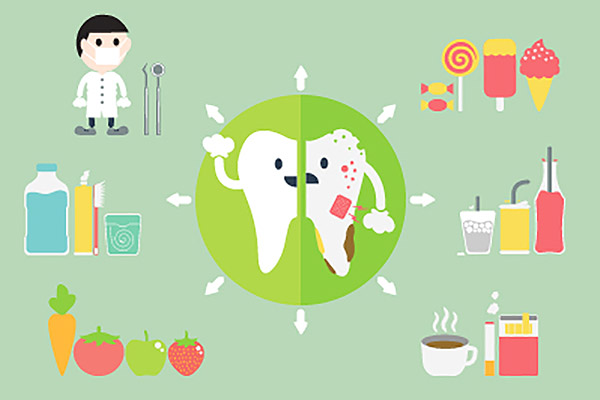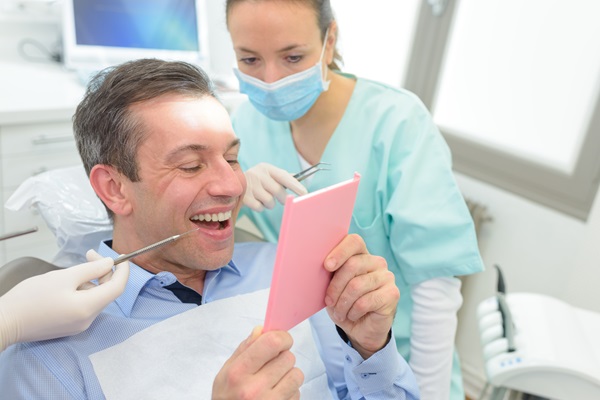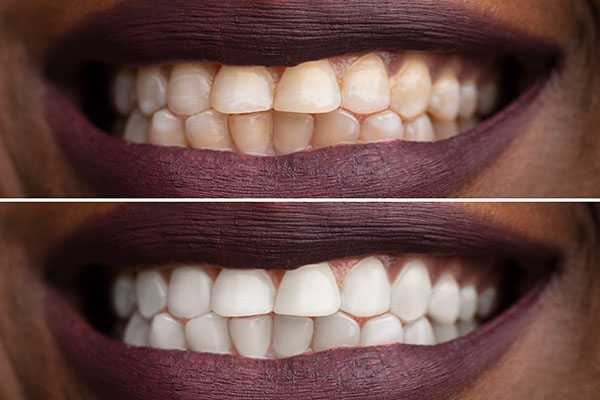 Most adults believe they have a good understanding of oral hygiene basics but may not use the proper techniques. To safeguard your oral health and protect your smile long-term, it is important to know the dentist-recommended best practices.
Most adults believe they have a good understanding of oral hygiene basics but may not use the proper techniques. To safeguard your oral health and protect your smile long-term, it is important to know the dentist-recommended best practices.
Care for your teeth
Oral hygiene basics begin with clean teeth, but this involves more than a quick swab of the surface with a toothbrush. Follow these guidelines for cleaning your teeth daily.
Brush thoroughly
Use proper equipment, including fluoride toothpaste and a soft-bristled toothbrush. An electric toothbrush could be even more effective at reducing plaque. Brush thoroughly, twice a day, for at least two minutes. Do not brush right after meals, as the acid on the food combined with the brushing action can damage your tooth enamel.
Brush the inside, outside, and chewing surfaces of your teeth, and do not forget to brush your tongue to get rid of bacteria. Use a good brushing technique with circular motions, holding the brush at a slight angle and aiming toward the gum line. Clean your toothbrush with water after use, and store it upright in the open air away from other toothbrushes. Replace your toothbrush or the head of your electric toothbrush, either when bristles become flayed or every three months.
Remove hidden bacteria
Bacteria hide in tight spaces under the gumline and between your teeth where toothbrushes cannot reach. To eliminate that hidden bacteria:
- A dental rinse with fluoride can help flush out bacteria and prevent plaque from building up
- Alternatives to floss that also reach between teeth include these interdental cleaners:
- Dental pick
- Pre-threaded flosser
- Water flosser
- Wedge plaque remover
- Floss gently, using an 18-inch piece of high-quality floss wound around the middle finger on one hand and gripped between your thumb and forefinger
- Floss one tooth at a time, sliding it into the space between the tooth and the gum—gently rub the sides of each tooth, avoiding snapping into the gums
Incorporate healthy habits
Along with tooth care, establish these habits for optimal oral health.
Eat a healthy diet
A proper diet is critical to positive oral hygiene. Limit sugary and starchy foods in favor of those rich in fiber and vitamins C and D. Eliminate drinks high in sugar or acid; opt for water instead. Finally, if you smoke, quit. Smoking is a risk factor for gum disease, leads to yellowing of the teeth, and causes bad breath.
Visit the dentist
Regular visits to the dentist are important to receive a professional cleaning, examination of oral hygiene basics, and X-rays to find hidden damage or areas of concern. While regular dental appointments for oral maintenance should be set for twice a year, you should also contact your dentist if you notice unusual symptoms or signs of gum disease or other oral health issues. These may include bad breath, bleeding gums when flossing or brushing, pain when chewing, loose permanent teeth, and gums that are red, swollen, tender, or pulling away from the teeth.
Conclusion
Ensuring a strong understanding and implementing daily practices of oral hygiene basics can help protect your smile and the function of your natural teeth for many years to come.
Request an appointment or call Gledhill Dental at 509-800-8410 for an appointment in our Kennewick office.
Related Posts
Having a solid handle on good oral hygiene basics will help preserve the integrity of your teeth and mouth health for a long time to come. Steering clear of cavities, receding gums, or decay ensures that your smile is bright and beautiful for as long as possible. If you think you already have an excellent…
Having a firm understanding of oral hygiene basics can prevent tooth decay, gum disease, and general oral discomfort. Human beings go through life developing a range of habits that impact oral health, some of which are good and some of which are bad. Avoiding these damaging behaviors promotes strong teeth and gums that can last…
Brushing and flossing your teeth daily are oral hygiene basics, but what about using mouthwash? Is it an essential part of keeping your teeth healthy.Except for fluoride rinses, mouthwashes are generally not part of the daily oral care routine recommended by dentists, but that does not mean it has no value. Using mouthwash correctly can…


